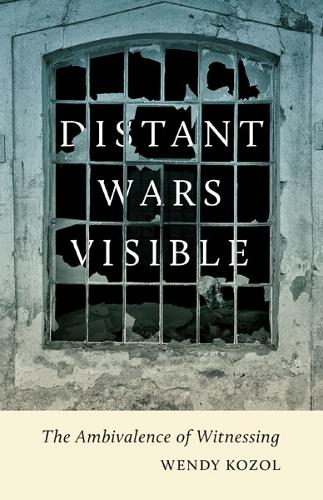
Distant Wars Visible: The Ambivalence of Witnessing
(Paperback)
Publishing Details
Distant Wars Visible: The Ambivalence of Witnessing
By (Author) Wendy Kozol
University of Minnesota Press
University of Minnesota Press
1st February 2015
United States
Classifications
General
Non Fiction
Media studies
Social and cultural anthropology
301
Physical Properties
Paperback
280
Width 140mm, Height 216mm, Spine 38mm
Description
Wendy Kozol brings a new perspective to questions about conflict photography and visual advocacy, whether in support of U.S. military objectives or in critique of the nation at war. She reveals how factors such as gender, race, and sexuality construct competing visualizations of identity in mediaand how contingencies and contradictions in visual culture shape the politics and ethics of witnessing.
Reviews
"In addition to its provocative analysis across visual cultural practices, speaking directly to an area of inquiry that has yet to be represented well at the book level, Distant Wars Visible makes an especially significant contribution at the level of theory. Wendy Kozol offers important new ways to conceptualize what she calls ambivalent witnessing in the spaces between spectacle and empathetic positions of seeing." Carrie Rentschler, McGill University
"Distant Wars Visible is well-researched and cohesive, possesses and imaginative argument, and contributes to the historiography of modern US international relations."H-Net Reviews
"Kozol. . . astutely applies feminist theory to visual reports about recent wars and national security issues, expanding understanding of witnessing as a cultural and political act."CHOICE
"Thoroughly researched and packed with rich and timely case studies, Distant Wars Visible will be of great interest to any scholar interested in the security states visual regimes and in the entanglement of warfare with the affects that conflict photographs may trigger more broadly."CAA Reviews/Art Bulletin
"In centering ambivalence as an analytic, Kozol aims to challenge some of the conventions for perceiving distance and intimacyfor instance, arguing that the familiar faces of a humanitarian or human interest photographic practice, which aims to render evidence of humanity, might instead reproduce a racial or civilization difference."American Quarterly
Author Bio
Wendy Kozol is professor of comparative American studies at Oberlin College. She is the author of Lifes America: Family and Nation in Postwar Photojournalism and has coedited two anthologies (with Wendy S. Hesford): Haunting Violations: Feminist Criticism and the Crisis of the Real and Just Advocacy Womens Human Rights, Transnational Feminism, and the Politics of Representation.
